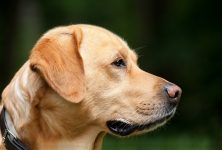Sniffer Dogs: Providing a Factual Basis for Suspicion

In order for police to legally search a person, premises or vehicle for drugs, they need to have a ‘reasonable suspicion’ that an illegal substance has been concealed. If police don’t have a factual basis for suspicion and they search a person, they will have acted illegally, and that person may be able to have any resulting charges withdrawn.
The Police Powers (Drug Detection Dogs) Act came into being in 2006, and allows police to perform searches on people, without a warrant, if a drug detection dog identifies them. The logic behind this is that identification by a drug sniffer dog creates a reasonable basis for suspicion, which then justifies searching the person.
Where are sniffer dogs used?
Sniffer dogs can be legally used in a number of different public places, including on public transport, at sports gatherings and at music festivals. They can also be used in pubs, clubs and entertainment venues where alcohol is served. In Sydney, police are allowed to use sniffer dogs in and around the area of Kings Cross.
How accurate are drug detection dogs?
The validity of drug detection dogs as a basis for reasonable suspicion has been called into question by a number of different organisations, including the NSW Ombudsman. There are a number of arguments that have been used to counteract the idea that drug detection dogs can provide a factual basis for suspicion, and give police a reasonable justification to search members of the public for drugs.
Accuracy was one of the main issues raised by the NSW Ombudsman in a report into the use of drug detection dogs. This report looked at the effectiveness of using drug detection dogs for crime detection and prevention, and revealed that only one in five positive drug identifications were in fact people carrying drugs.
Of these positive identifications, the NSW Ombudsman found that they were mostly young people using small amounts of cannabis for recreational use. The drug detection dogs had little or no impact on helping detect and prevent serious drug crimes, such as trafficking or dealing.
The NSW Council of Civil Liberties said that as the drug detection dog scheme currently stands, certain areas of Sydney, particularly the inner city and inner west, are unfairly targeted. With the extreme concentration of drug detection dogs in and around Kings Cross, for example, local residents have made complaints to say that police unfairly target certain areas, including public transport. Residents have also complained in the Newtown and Marrickville areas.
What should I do if I am searched after identification by a drug detection dog?
If a drug detection dog gives you a positive identification, you should comply with the search. If drugs are found, just give police your essential details, and speak to a criminal defence lawyer as soon as possible. It is a good idea to avoid answering any questions or giving any further information until you have had professional legal advice from a good lawyer.
You could end up saying something inaccurate while under stress, which could damage your defence later on. If you believe that police have used a drug detection dog outside the legal boundaries, you can complain to the NSW Ombudsman or the Council of Civil Liberties, or speak to a defence lawyer who will advise you what to do.






